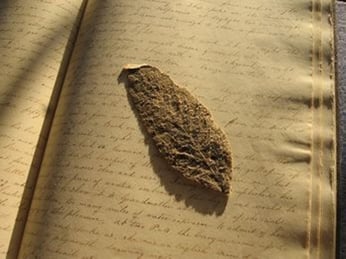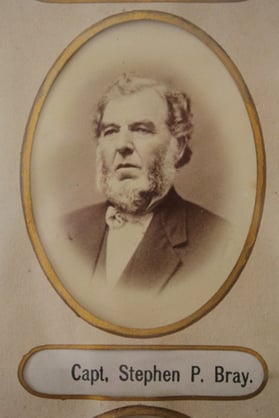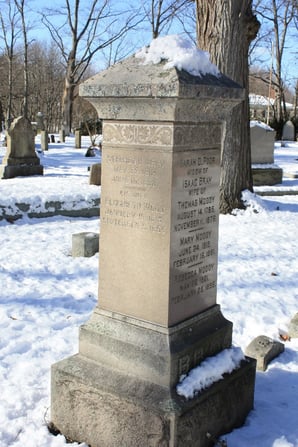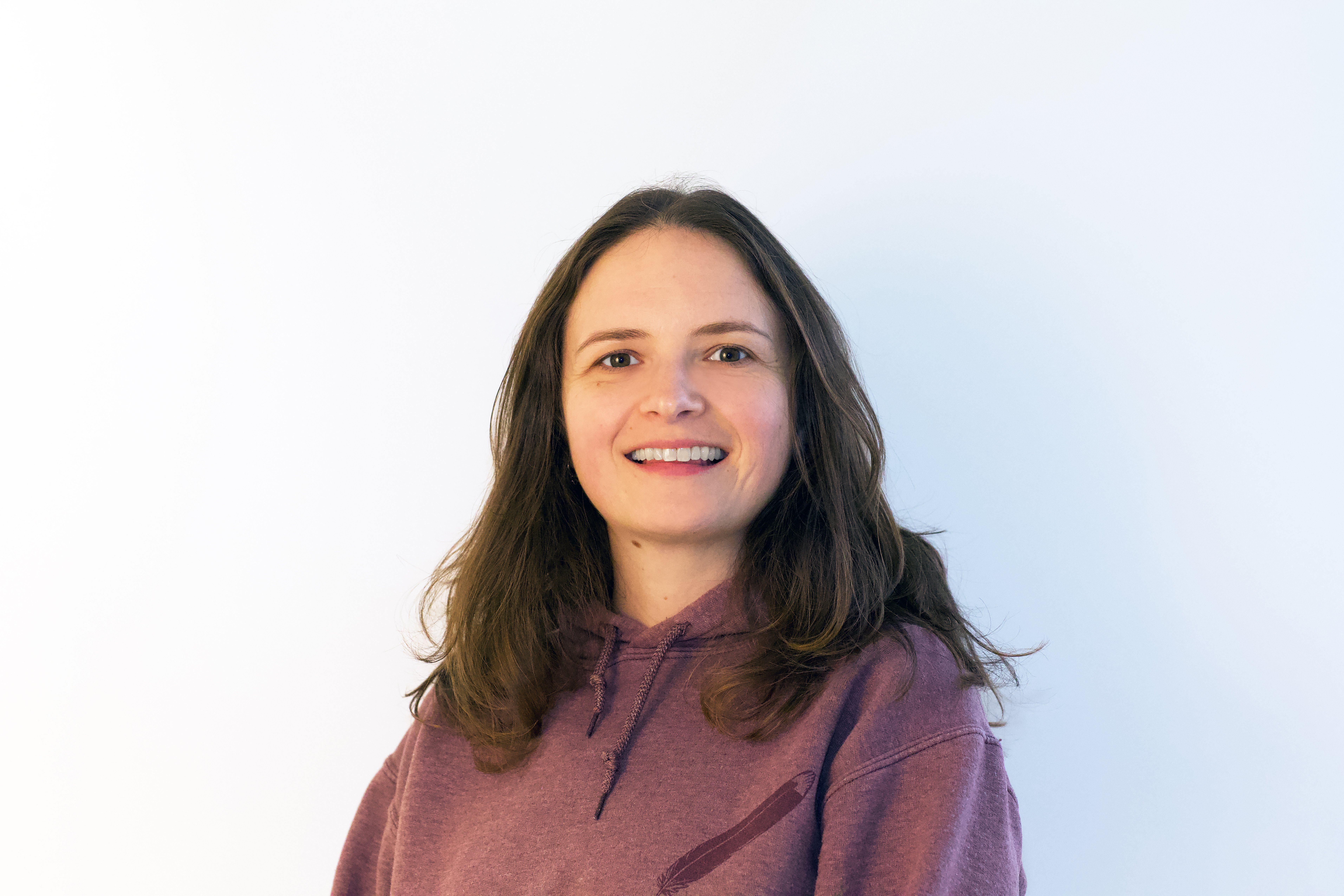 I spent over a decade volunteering at the Custom House Maritime Museum in Newburyport, Massachusetts. During that time I’ve helped with many projects, but one of the most exciting began when I uncovered a ship log with an unusual provenance. Unlike the vast majority of 19th-century ship logs, this one was written by a woman.
I spent over a decade volunteering at the Custom House Maritime Museum in Newburyport, Massachusetts. During that time I’ve helped with many projects, but one of the most exciting began when I uncovered a ship log with an unusual provenance. Unlike the vast majority of 19th-century ship logs, this one was written by a woman.
I stumbled upon the log one day while I was in the attic of the museum, looking for material for a Christmas show. The museum knew that they had the log, but never really knew what it was. The writer’s name was Elizabeth Bray. She accompanied her husband, Captain Stephen Bray, on a few voyages in the mid-19th century, when the shipping and shipbuilding industry in Newburyport was at its peak. Stephen Bray was a member of the Marine Society of Newburyport, and the photograph shown below is his official portrait. The journal itself was donated to the museum by Elizabeth’s daughter, Fanny, who accompanied her parents on a voyage when she was just five years old.

Captain Stephen Bray, The Marine Society
This log contains much more detail than reports on the weather and the location of the ship during the voyage, the typical focus of ship logs. Elizabeth even took the time to press leaves from the places that they visited into the pages of the journal. Reading like a novel, it a contains detailed descriptions of their journey, as well as Elizabeth’s mindset along the way. For example, she wrote the following in one of her first entries on September 25, 1854:
“Left home and all endearments to accompany my husband on a voyage by sea. ... The day is fine, the family in good health, the boys will be provided for, everything seems favorable to my taking this journey, which I have desired all my life, and now for the first time have the opportunity.”
From this entry we can conclude that Elizabeth had other children, at least two sons. The journal eventually revealed much more than that. We were able to follow Elizabeth’s route around the world as she documented the friends and family that she visited in various foreign ports, including what they ate and what sites they visited on shore. She even sometimes reported on the ship’s cargo, as well as the emotional status of the crew.
I have been documenting Elizabeth’s genealogy in an on-going personal project for the museum. Discovering a resource such as this for a genealogical project is like finding a needle in a haystack. The journal is a source for so much more than the simple names and dates which form the backbone of family history research. It provides the kinds of stories we wonder about when we research people from the past. We can apply details from Elizabeth’s life to the lives of countless other women who accompanied their husbands at sea, painting a broader picture of society at that time.
Ships logs like this one can even be used for research outside the usual bounds of genealogy and history. Quite recently, Woods Hole Oceanographic Institution (WHOI) partnered with UMASS Dartmouth to document the progression of climate change using historic whaling ship logs from as far back as the 1700s. Their findings will provide climate researchers with crucial information from past eras, long before data was intentionally collected for this purpose.
If you are researching family history in a specific area, I encourage you to contact your local historical societies and museums, as they may have documents which pertain to your family history. You never know until you look!

The gravestone of Elizabth Bray in Newburyport
Further Research
Search Special Collections from American Ancestors
Unpublished manuscripts are held in the R. Stanton Avery Special Collections. These include family and personal papers, records of family associations, papers of professional and amateur genealogists, military records, town and government records, church records, and unique primary source documents. Select manuscripts have been digitized and are available to view online.
Free Webinar: Deciphering Old Handwriting
While we might wish all our ancestors’ records were typed in a standard format and perfectly legible, that simply isn’t the case. Many of the records family historians turn to are handwritten and may be faded, use archaic terminology, unfamiliar abbreviations, or are just plain illegible. This online lecture will provide practical strategies for approaching handwritten documents, understanding and deciphering hard-to-read handwriting from different time periods, so that you can make the most of these important resources in your family history research.
Free Webinar: Researching Mariner Ancestors in New England
For many living in New England during the 17th through 19th centuries, their livelihood and even survival was inextricably linked to the sea. In this webinar genealogist Susan Donnelly will provide a brief history of mariners in New England, discuss major ports and sources of industry, highlight key records, and demonstrate how to reconstruct your ancestor’s life on the sea and along the shore.
Share this:

About Kate Gilbert
Kate Gilbert has been a member of the Research Services team since 2023. She holds a BA in History from the University of New England, as well as a Master's Certificate in Museum Studies from Tufts University. She also obtained a Certificate in Genealogical Studies from Boston University, as well as a Certificate in Research and American Records from the International Institute of Genealogical Studies. Kate is also a Titanic Historian. She enjoys research in Ireland, and the New England states, and also has experience researching enslaved individuals, as well as research in the states of Minnesota, Pennsylvania, Georgia, New York, Kentucky, and research relating to locating living descendants. Areas of expertise: Ireland, French Canada, and New EnglandView all posts by Kate Gilbert →